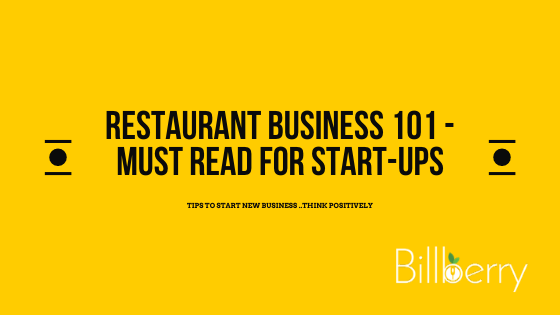The dynamic lifestyle and shifting demographics drive the restaurant industry.
More and more people simply cannot find the time to cook, and yet they like nothing more than a cooked meal.
It is a trend that is growing year by year consistently without any signs of stopping.
However, the restaurant business is one of the most ruthless ones.
There is a huge market, a massive opportunity, but success is far from guaranteed.
Each year, more than 9000 independent restaurants close their doors permanently.
Moreover, CORONA pandemic has hit this industry very hard.
Many experts assume that everything is going back to new normal where you will see new ways this business is going to be operational with much safety and profits.
Restaurant Management System – Free Demo
So, how to make it in the restaurant business?
Elements like reliable restaurant management software that offer a robust point of sale software might help with the success of your business.
However, if you run a franchise food business then the most basic one is having the best franchise software like Billberry.
Here are a few basic principles for opening and running a successful restaurant business.
Choose Your Niche
The first decision should be about the type of restaurant.
There are many similarities between the various types of restaurants, but at the same time, there are many differences.
Differences in terms of how to run it, the things it takes to be successful, the culture that you want to implement in it and, how to reach your primary group of customers.
The choice is between a fast-food restaurant, a classic American diner, deli for busy lunch-goers, a midscale family-friendly restaurant, an upscale restaurant, or something in between.
Whatever it is, you need to have a clear vision of what you want it to be and how to run it.
Write a Business Plan
Once you are certain about the type of restaurant you want to open and how you will manage it, you need to put all on paper.
That means creating a credible business plan on which you will map out everything long before you buy the first fork.
The business plan should include a clear explanation of your concept, your market described in full, menu, pricing, financial information such as the startup capital, the sources of your startup capital, expense forecast, marketing plan, long and short term income projections, employee hiring and training, and challenges you are likely to face daily.
Some folks even include an exit plan in their business plan.
Also consider including a robust restaurant billing software to your restaurant business plan.
Funding Your Business
The amount of money you need can depend on many factors such as the type of the restaurant, the facility, buying equipment (used or new), inventory, money for marketing, and operating capital until your business starts generating cash.
Here are a few ideas on how to raise some seed money that will help you take your idea from the floor:
- Your Resources: Go through all of your assets and see if there is something with value that you can sell. Many people own assets without realizing their worth. The asset can be equity in real estate, some old saving account you have forgotten about, collection of stuff, vehicle, or something else that holds some value. Whatever it is, you may use it to sell it and get cash, or use it as collateral to get a loan.
- Friends and Family: Go to your friends and family, explain to them what you want to accomplish, present your business plan, and assure them that you are fully committed to succeed. You never know who might be interested in investing.
- Government Grants: Many local, state and federal programs support new businesses. Go through each one of them and see if you are eligible to get a government grant.
Get All Required Licenses
There are a few legal things to consider when opening a restaurant.
First of all, you need to be licensed from the local controlling jurisdiction.
Next, you will need to get a liquor license if you plan to serve alcohol at your restaurant.
Sometimes you need to check with the city if there is any zoning issue that might be on your way of opening a restaurant.
Check the zoning regulations for your location and your building.
Safety Regulations
Running a restaurant means complying with a set of state and federal regulations.
If the restaurant fails to meet some or all of those regulations, it can be fined or even closed.
Fire safety and sanitation are considered as the most critical ones.
Furthermore, you need to provide a safe environment in which the employers can do their duties, and the guests can dine.
There are other safety regulations, but most regulatory agencies will work with any new operator to help them meet the needed requirements.
To that end, each state has its general information office that can help you get in touch with all the regulators.
Final Words
In the end, if you are dedicated, got a solid business plan, got your licenses in order, and people that believe in you – you don’t have to worry much.
Your only concern should be the tastiness of your dishes and keeping your guests coming back and wanting more.
Most importantly it will remain a profitable business in the end as long as people with stomach are on earth; this business is never going to be shut permanently.
If you like this Restaurant Tips 101, please spread the work about our industry leading Restaurant Management System.






